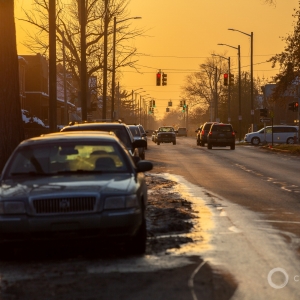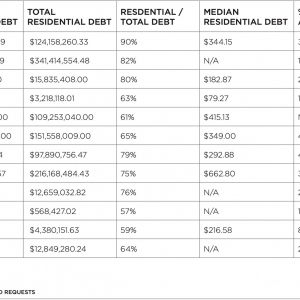The Stream, October 15, 2020: Flint Homes With Copper Pipes Must Be Checked For Lead Contamination
YOUR GLOBAL RUNDOWN
- Homes in Flint, Michigan built after 1990 must also be checked for lead, a judge rules.
- Saudi Arabian researchers are trying to increase desalination without harmful environmental effects.
- Rwanda lost over 40 percent of its water supply in four months.
- Egyptian farmers worry about the effect the Grand Ethiopian Renaissance Dam will have on their livelihood.
Researchers at Montana State University are developing structures that could help fish and farmers.
“We want to find solutions that benefit not only the fish but the irrigators who use the river, and this study is exploring how to do that.” – Matt Blank, a research scientist at Montana State University’s Western Transportation Institute. Blank is part of a team of researchers that is studying structures that allow infamous fish species in Montana to overcome irrigation structures that are otherwise barriers to their seasonal movements, the Billings Gazette reports. The team’s current project is redesigning fishways, or metal troughs that provide a reasonably calm flow for fish to pass through, to use less water while still being large enough for fish to cross through. If the study is successful, it could satisfy landowners who need irrigation water and provide a clear pathway for fish.
THE LATEST WATERNEWS FROM CIRCLE OF BLUE
Michigan Allocates $20 Million to Relieve Customer Water Debts
Michigan residents who are behind on their water bills will soon be getting some relief.
The Michigan Department of Health and Human Services will distribute more than $20 million to 116 water utilities to cover water bill debt that their customers accrued since March 1 when the pandemic emergency began.
In Case You Missed It
Lack of Utility Data Obscures Customer Water Debt Problems – Inadequate data hampers understanding of who is most affected by overdue water bills.
Researchers Are Trying To Produce More Desalinated Water And Less Brine
Researchers in Saudi Arabia are trying to imagine a new, more environmentally friendly future for desalinated water producers, Reuters reports. Saudi Arabia currently is the world’s leader in desalination, but also produces the most brine—highly salty wastewater—that can disrupt marine ecosystems. The government owned Saline Water Conversion Corporation (SWCC), which says it makes 69 percent of the country’s desalinated water, is working to reduce the amount of brine that ends up back in the sea. Gulf countries like Saudi Arabia rely on desalination due to their hot, water-scarce climates. SWCC operates 33 desalination plants throughout the country and a few more plants are privately operated.
TODAY’S TOP STORIES, TOLD IN NUMBERS
44 PERCENT
Leakages, natural disasters and water theft are just a few factors that attributed to the loss of 44 percent of Rwanda’s water supply between December 2019 and March 2020, reports Pumps Africa. Rwanda Utilities Regulatory Authority (RURA) fears that the country may not be able to reach 100 percent universal access to clean water by 2024, a target they set for themselves. Eng. Aimé Muzola, WASAC Chief Executive Officer, said water projects—including replacing old pipes and creating more water reservoirs and water supply systems—to reduce the average losses from 38 percent to 25 percent are in the works. Other challenges, like high-level water theft and leaks from road construction, are harder to resolve.
300,000 DOLLARS
A judge ruled that the city of Flint must check for lead in neighborhoods built after the 1990s, even though the city believes those homes have copper pipes. The AP reports that the city estimates the extra neighborhoods will cost an additional $300,000 of nearly $100 million in state and federal money that is being used for the water line project. Property owners, the judge made clear, can still refuse the work.
ON THE RADAR
Farmers in Egypt fear the Grand Ethiopian Renaissance Dam (GERD) will cost them their already deteriorating livelihoods, according to The Africa Report. One farmer, Mossab Saleh, said he and his family had to abandon their cotton farm because of a shortage of government regulated water and blames that shortage on the construction of the GERD. Farmers across Egypt are abandoning traditional farming practices for others, like growing vegetables, which bring in less money. Some farmers have abandoned agriculture all together. The water shortage, which has added to mounting agricultural woes in recent years, has pushed some farmers to take action, attending scattered, unorganized peaceful protests. Others have advocated for the exploration of different methods of irrigation that could become necessary to combat the economic and social consequences of water shortages.
In context: HotSpots H2O: Tensions Rise in Horn Of Africa as Ethiopia Fills Controversial Dam
Jane is a Communications Associate for Circle of Blue. She writes The Stream and has covered domestic and international water issues for Circle of Blue. She is a recent graduate of Grand Valley State University, where she studied Multimedia Journalism and Women, Gender and Sexuality Studies. During her time at Grand Valley, she was the host of the Community Service Learning Center podcast Be the Change. Currently based in Grand Rapids, Michigan, Jane enjoys listening to music, reading and spending time outdoors.







Leave a Reply
Want to join the discussion?Feel free to contribute!